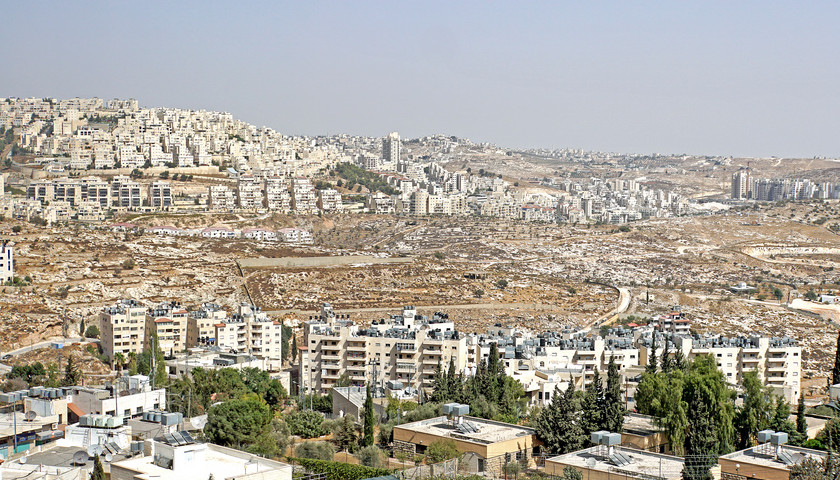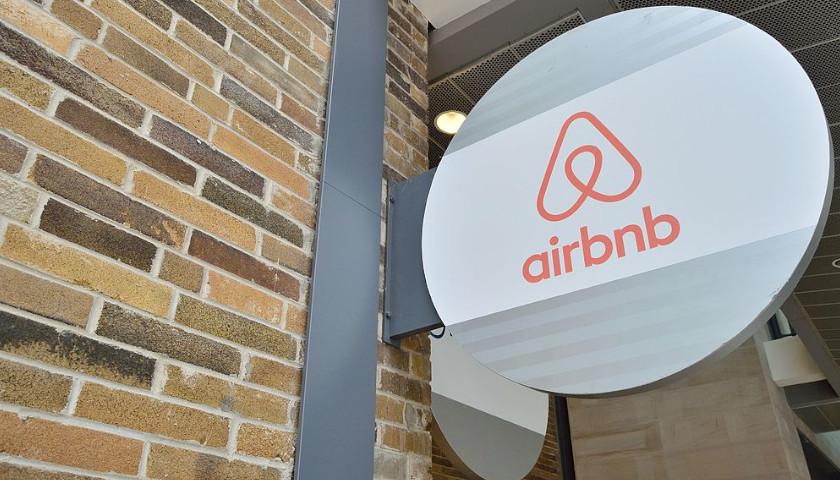by Brad Sylvester
Michael Oren, a deputy minister in the Israeli prime minister’s office and the former Israeli ambassador to the U.S., claimed on Twitter that the property rental company Airbnb “blacklists” Israeli apartments in the West Bank, while continuing to allow listings in other disputed territories.
Airbnb blacklists Jewish apartments in Judea and Samaria – not Palestinian apartments, not apartments in Turkish occupied Cyprus, in Moroccan occupied Sahara, not in Tibet or the Crimea. Airbnb’s policy is the very definition of anti-Semitism. No one should use its services.
— Michael Oren (@DrMichaelOren) November 19, 2018
“Airbnb blacklists Jewish apartments in Judea and Samaria – not Palestinian apartments, not apartments in Turkish occupied Cyprus, in Moroccan occupied Sahara, not in Tibet or the Crimea,” he said in the tweet.
Verdict: True
Airbnb, which recently announced that it would remove all listings in Israeli settlements of the West Bank, allows listings in disputed regions like Northern Cyprus and Tibet. The company does not do business in Crimea as Oren claimed. Airbnb presently allows listings in the Western Sahara, although it is considering whether to remove those listings.
Fact Check:
 Israel captured the West Bank during the Six-Day War of 1967 and began establishing settlements there in the years that followed. Today, there are around 400,000 Israelis living in 132 government-recognized settlements in the West Bank, excluding East Jerusalem.
Israel captured the West Bank during the Six-Day War of 1967 and began establishing settlements there in the years that followed. Today, there are around 400,000 Israelis living in 132 government-recognized settlements in the West Bank, excluding East Jerusalem.
The U.N. considers the land to be occupied Palestinian territory and has condemned the settlements as illegal under international law. Israel insists the West Bank is disputed, not occupied, territory.
Airbnb announced on Nov. 19 that it would remove listings from Israeli settlements in the West Bank, which it says are “at the core of the dispute between Israelis and Palestinians.”
“Our team has wrestled with this issue and we have struggled to come up with the right approach,” it said in a press release. The move will affect some 200 listings.
The company laid out a “global framework” for how it would deal with listings in disputed regions like the West Bank, saying it would take into account the safety of guests and hosts, whether the listings are “contributing to existing human suffering” and whether they have a “direct connection to the larger dispute in the region.”
Airbnb stated that it would apply the framework to other disputed regions in an “ongoing manner.” It will continue to allow listings in Israeli settlements in East Jerusalem and the Golan Heights, other areas that many consider to be occupied.
Some, like Oren, have argued that Airbnb’s decision to remove listings in the West Bank is discriminatory against Israel, claiming that Airbnb continues to allow listings in other disputed territories around the world.
“This decision is appalling in its hypocrisy, outrageous in its discrimination, and counterproductive in its effects,” Gilad Erdan, the strategic affairs minister for Israel, said at the Jerusalem Post’s Diplomatic Conference on Nov. 21. “Airbnb operates in 191 countries, in which there are dozens of disputed territories. Yet Airbnb hasn’t decided to de-list properties in any of them. Only in Israel.”
In order to comply with international regulations, Airbnb doesn’t do business in Crimea, Iran, Syria and North Korea. (Oren incorrectly listed Crimea in his tweet as an area where Airbnb continues to allow listings.) Outside of these parts of the world, plus the recent addition of the West Bank, Airbnb does allow listings in a number of disputed areas.
A search on Airbnb shows hundreds of listings in Tibet, a region that China has controlled since its invasion at Lhasa in 1950. The legitimacy of China’s claim to Tibet continues to be disputed by many Tibetans and the Tibetan government-in-exile, which maintains that the region is an independent nation under illegal occupation.
Airbnb also lists 24 rentals in the Western Sahara, an area that has been disputed and fought over for decades. Most of the Western Sahara is currently controlled by Morocco, despite the fact the region was proclaimed an independent nation called the Sahrawi Arab Democratic Republic (SADR) by the opposition group the Polisario Front in 1976.
The SADR at one point had recognition from 84 nations and is a member of the African Union. The U.N. considers the Western Sahara to be a non-self-governing territory. Airbnb said in a statement to The Times of Israel that it will apply its framework to assess listings in the Western Sahara.
In Northern Cyprus, another disputed region, Airbnb has hundreds of listings. Turkey invaded the island in 1974 in response to a coup d’état and soon gained control of the northern half. The island has been divided ever since, with Greek Cypriots on the southwestern side of the island and Turkish Cypriots controlling the northeast portion.
In 1983, the Turkish region of Cyprus declared independence as the Turkish Republic of Northern Cyprus (TRNC). Turkey is the only country that recognizes the TRNC. The Republic of Cyprus maintains that Northern Cyprus is being illegally occupied.
Airbnb also has listings in other disputed regions, such as Gibraltar, the Falkland Islands and Abkhazia.
Airbnb announced its decision to remove Israeli listings from the West Bank a day before Human Rights Watch published a 65-page report – “Bed and Breakfast on Stolen Land” – about the effects of tourist rental listings in the region. Airbnb has previously come under pressure from Palestinian and other advocacy groups.
Many praised Airbnb’s decision. Omar Barghouti, a co-founder of the Boycott, Divestment and Sanctions movement told The Los Angeles Times that the decision was a “step in the right direction,” but called for Airbnb to remove listings in East Jerusalem and the Old City of Jerusalem as well.
“Companies that are complicit in Israel’s egregious human rights violations must end their complicity and involvement — and involvement with settlements in particular is a major form of complicity, because Israeli settlements in the occupied Palestinian territory including East Jerusalem are considered a war crime under the Fourth Geneva Convention,” he said.
Others remain critical of the decision, in part for calling the status of the West Bank historically disputed.
“Historical disputes are just a dime a dozen. But they’ve only picked one pseudo-historical dispute, a dispute over the internationally recognized, indigenous homeland of the Jewish people,” Eugene Kontorovich, a director at the Kohelet Policy Forum in Israel and professor at George Mason University’s Antonin Scalia School of Law, told The Daily Caller News Foundation.
A law firm in Jerusalem has filed a class action lawsuit against Airbnb accusing them of discrimination for their removal of listings in the West Bank.
Airbnb did not respond to a request for comment.
– – –
Brad Sylvester is a reporter for the Daily Caller News Foundation. Follow Brad on Twitter





